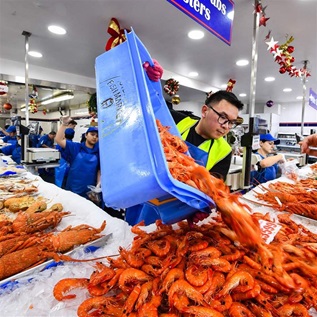Fishing Forges Connections
Now that spring has finally arrived, many anglers across the nation are dusting off their fishing gear and can't wait to get back on the water. Pew's “Fishing Forges Connections Across Generations” series continues to highlight personal stories about time spent fishing with friends and loved ones and why we need to protect the ocean fish that make these special moments possible.
Future generations will need a strong Magnuson-Stevens Fishery Conservation and Management Act so that they, too, will be able to tell their own stories. While not all of the species in the following posts are managed by the law, each story features fond fishing memories. Share your personal experience here.
Brian Shepter: Baltimore, Maryland
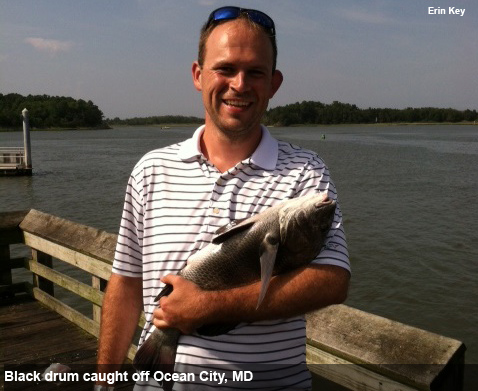
I love being on the water. Last Labor Day weekend, I took a break from work and city life in Baltimore and spent some quality time with family and friends at the beach. We spent a great day ocean fishing near the Maryland coast and I was rewarded with a 7.2-pound, 23-inch black drum. Spending time fishing on the water is a great way for me to relax and reconnect with nature and the people who are important to me. I strongly support the Magnuson-Stevens Act as a vital part of protecting and maintaining our oceans and fishing populations so generations to come can enjoy them like we do.
Blake Kohn: Rock Hall, Maryland
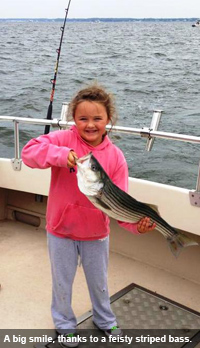
Every summer, the Mules family takes a fishing trip. We welcome new family members, catch up with old members, and spend a day enjoying each other and the beautiful water. This past year, the youngest member of the family, 6-year-old Caroline Kohn (pictured) was also the most successful fisherman, catching a 10-pound striped bass—the largest catch of the day! With the help of her family, my daughter reeled in the 10-pounder and we served him up for a family dinner that night. Clearly, Caroline has inherited her talent from her Aunt Rebecca (aka Aunt Duk Duk), who has competed in local fishing competitions. Aunt Rebecca has instilled her fishing skills and appreciation for the water and its inhabitants to a younger generation, and hopefully Caroline will continue the tradition in years to come. That is why we support the Magnuson-Stevens Act that protects fish populations and helps overfished species recover.
Mary Lou McDonough: Bowie, Maryland
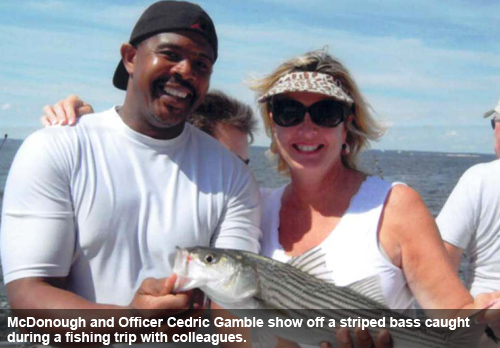
Working in public safety is a very serious and high-pressure job, but the members of the Prince George's County Department of Corrections have an annual summer fishing trip to build morale. We really enjoy getting out on the open water for a chance to relax and have fun together. This past July, my deputies, Col. Greg Harris and Officer Cedric Gamble, and I went fishing off the coast of Maryland. We caught a couple of rockfish and went home very happy. We believe in protecting Maryland's natural resources and strongly support the Magnuson-Stevens Act as an essential element to maintaining sustainable fish populations in our oceans and preserving those vital resources for generations to come.
Pete Mazari: Voorhees, New Jersey
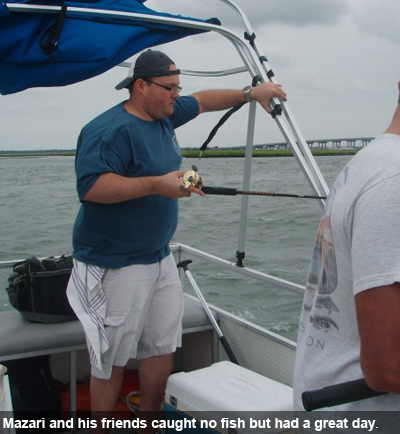
Every summer, a group of friends and I try to get together at least once to go fishing. Last summer, we rented a small boat and went out fishing for flounder. As soon as we got in the boat, we realized it may not have been in the best shape, but it would certainly meet our needs for the day. By the time we got ready to cast our lines, we learned we couldn't get our boat in and out of neutral. That, along with the rainy, windy weather, made it very difficult for us to catch anything, let alone stay where we wanted to be.
Needless to say, we didn't end up catching any flounder on this particular trip, but it's always fun to be out on a boat with friends. Every year, it gets harder for us to get together, now that we live in different states. But I hope we continue this tradition for many years to come. In order for us to continue this fishing together in the future, fishing practices that minimize habitat damage should be employed in our waters. This is why I believe in strong habitat protections and conservation principles in the Magnuson-Stevens Act.
Dustin Starnes: Pearl, Mississippi
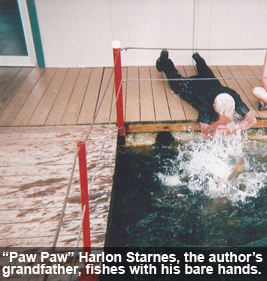
My favorite childhood memory is fishing with my grandfather (aka Paw Paw Harlon). He took me fishing all over the southern United States. One summer when I was very young and living in Jackson, I came home from school excited to tell Paw Paw and Dad that we had a real beach in Mississippi and that I wanted to go fish there. The next weekend, Paw Paw threw me in his truck and off to the Gulf Coast we went! I caught three big fish that weekend and even got to see Paw Paw catch a fish with his hands on the pier! Luckily for me, someone took a picture of him doing so and I will always be able to have that great memory. I support a tough Magnuson-Stevens Act, which protects our nation's fisheries for future generations, because one day I want to be able to make the same memories with my grandchildren. They have a right to enjoy the things in their lives that we get to enjoy in ours.



